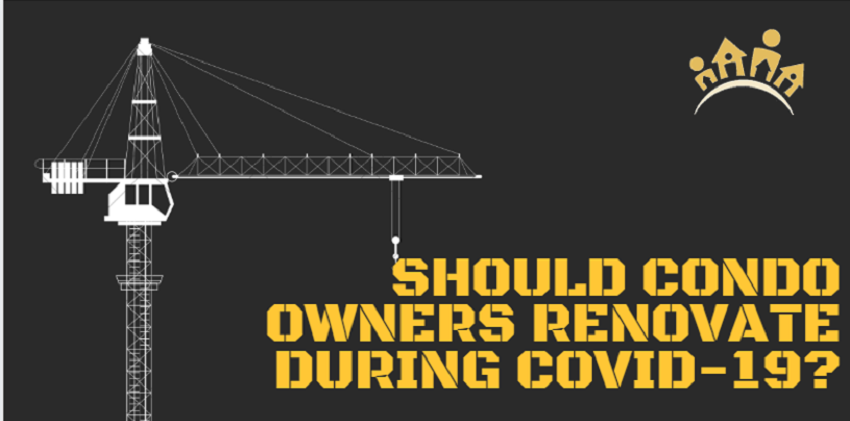Condo Renovations during COVID19

Even though Georgia has started to reopen for business, community associations are still taking precautions during the COVID-19 pandemic. This is especially true for condominiums where public indoor spaces are often unavoidable (e.g., common element lobbies, elevators, and mail rooms). For this reason, condominium boards and managers have been justifiably concerned about residents bringing in outside visitors. In fact, there have been many questions as to whether a resident should be allowed to bring his or her contractor into the building?
In early April, persons that were required to shelter-in-place (under Governor Kemp’s Executive Order dated April 2, 2020) were not supposed to receive visitors unless the visitor qualified under one of the exceptions listed in the Order. In the context of a visiting contractor, the most applicable exceptions were for: (1) visitors providing support for the person to conduct activities of daily living or instrumental activities of daily living; and (2) visitors providing necessary supplies and services, such as food and supplies and equipment needed to work from home, and products needed to maintain safety, sanitation, and essential maintenance of the home or residence. Although the Order above is no longer in effect, condominium boards and managers can still use the foregoing language as guidance for visiting contractors going forward.


